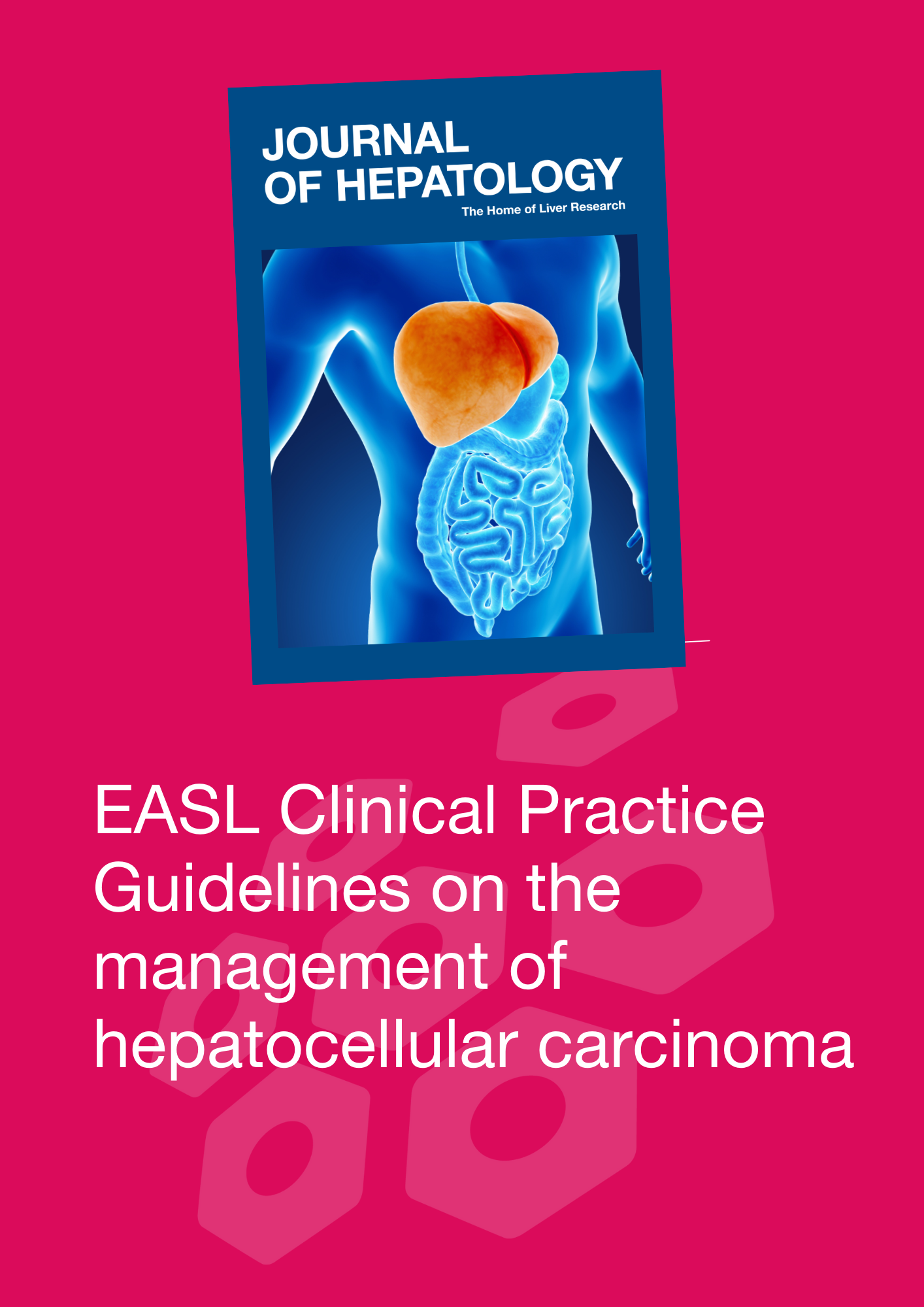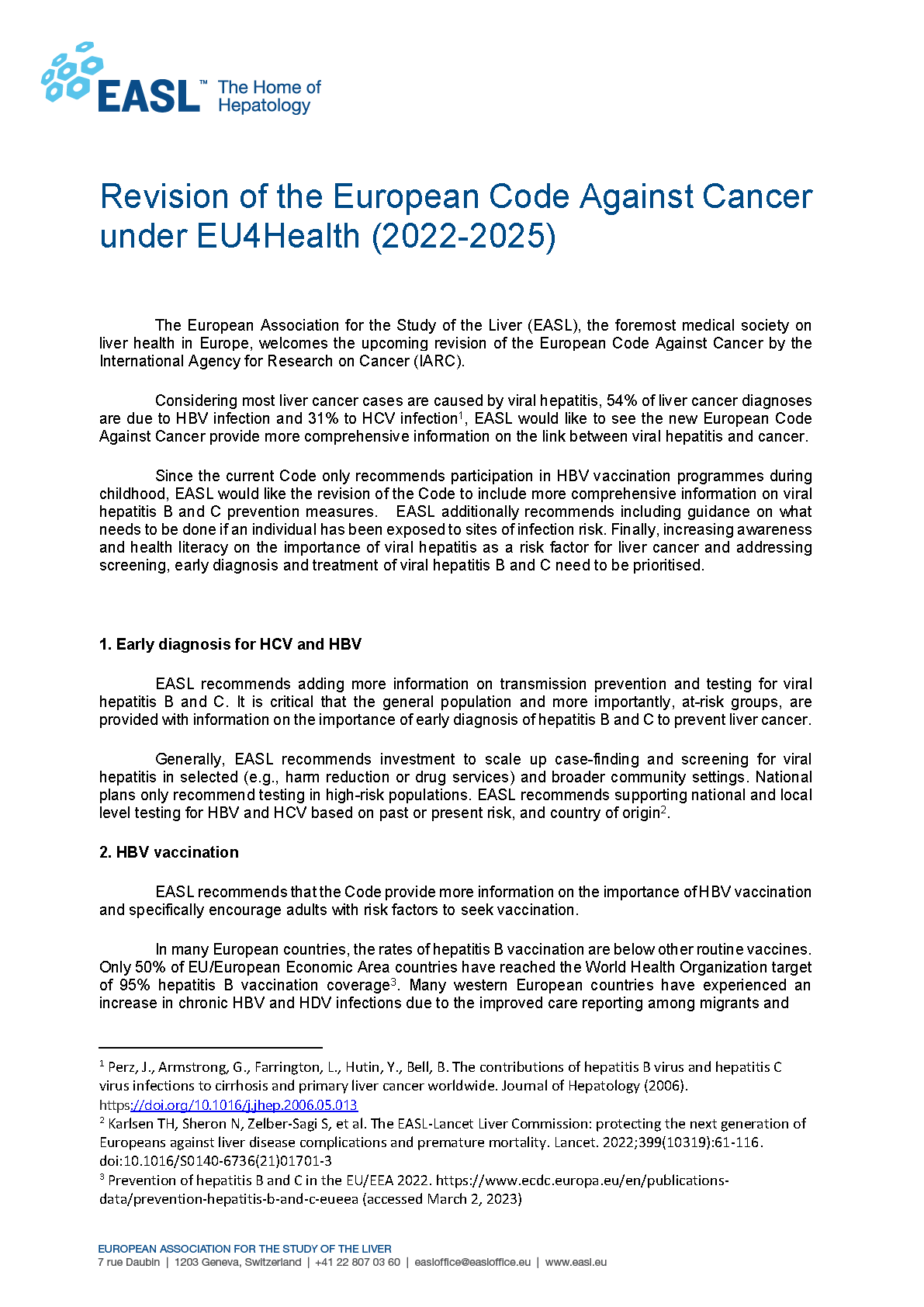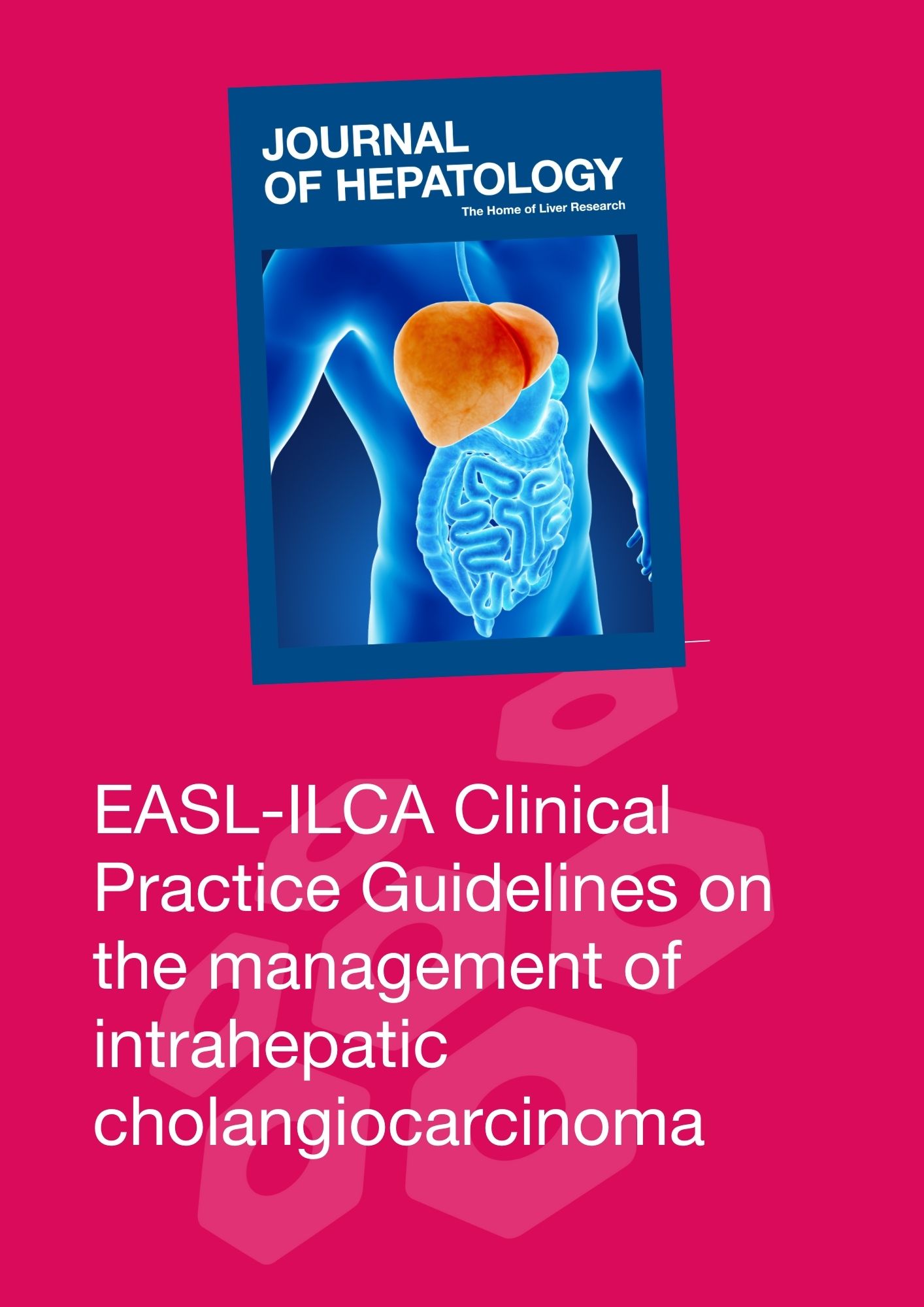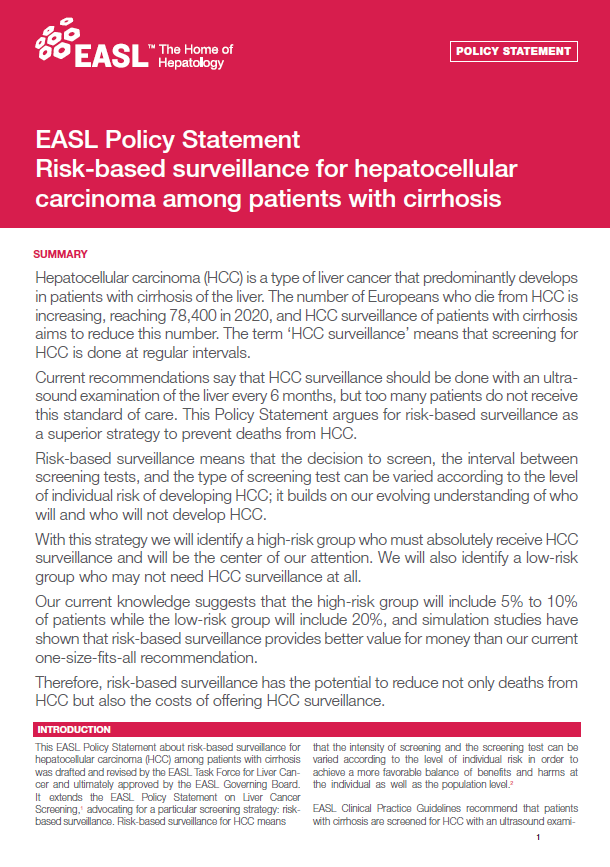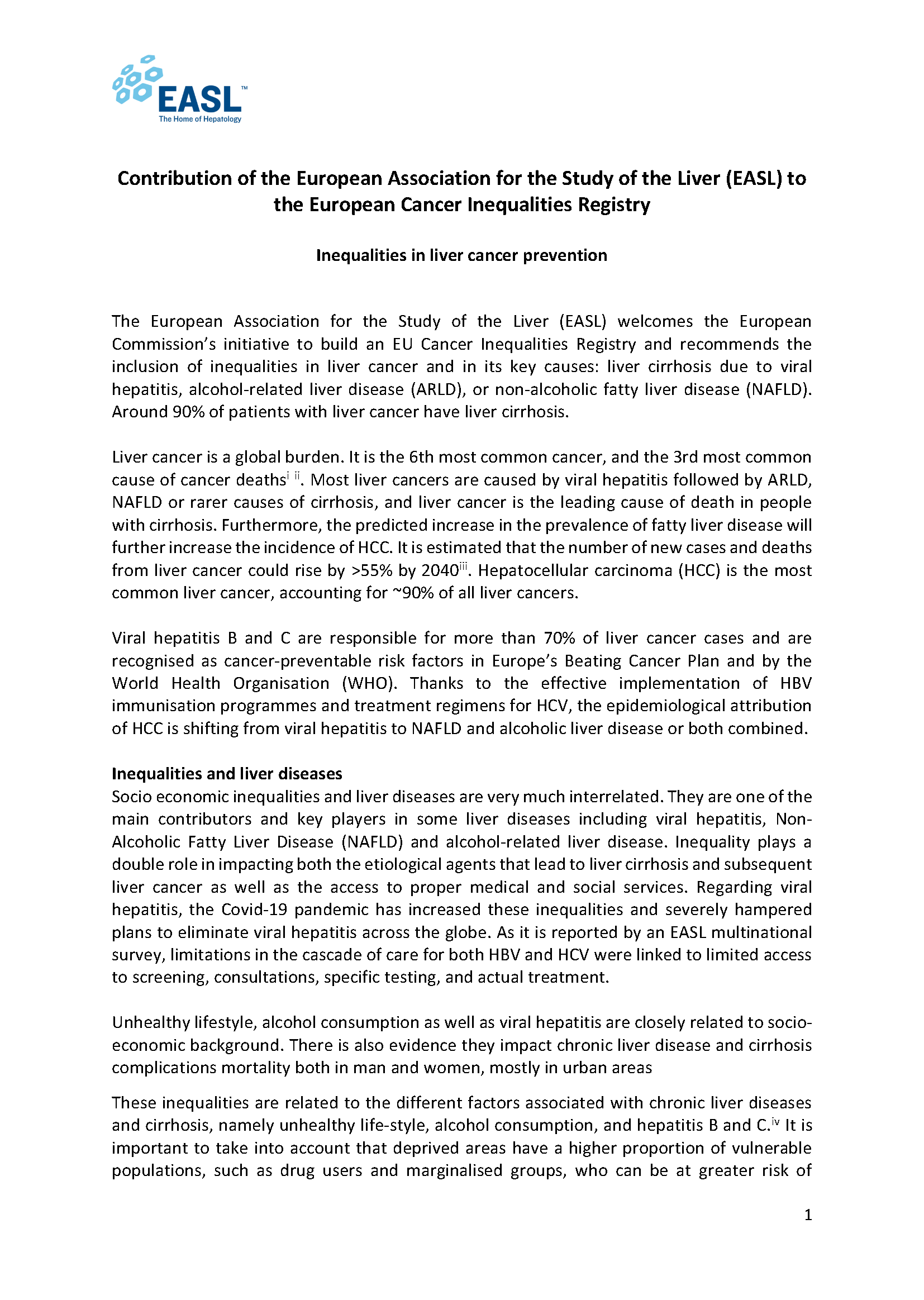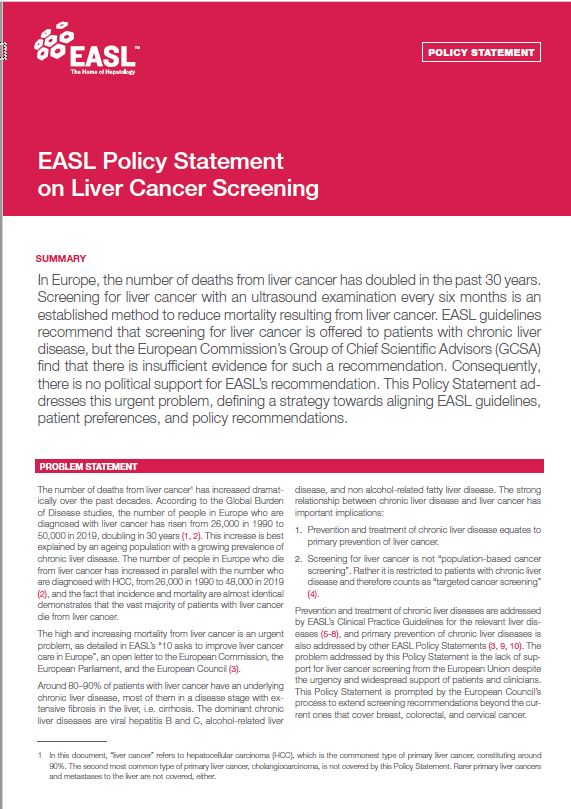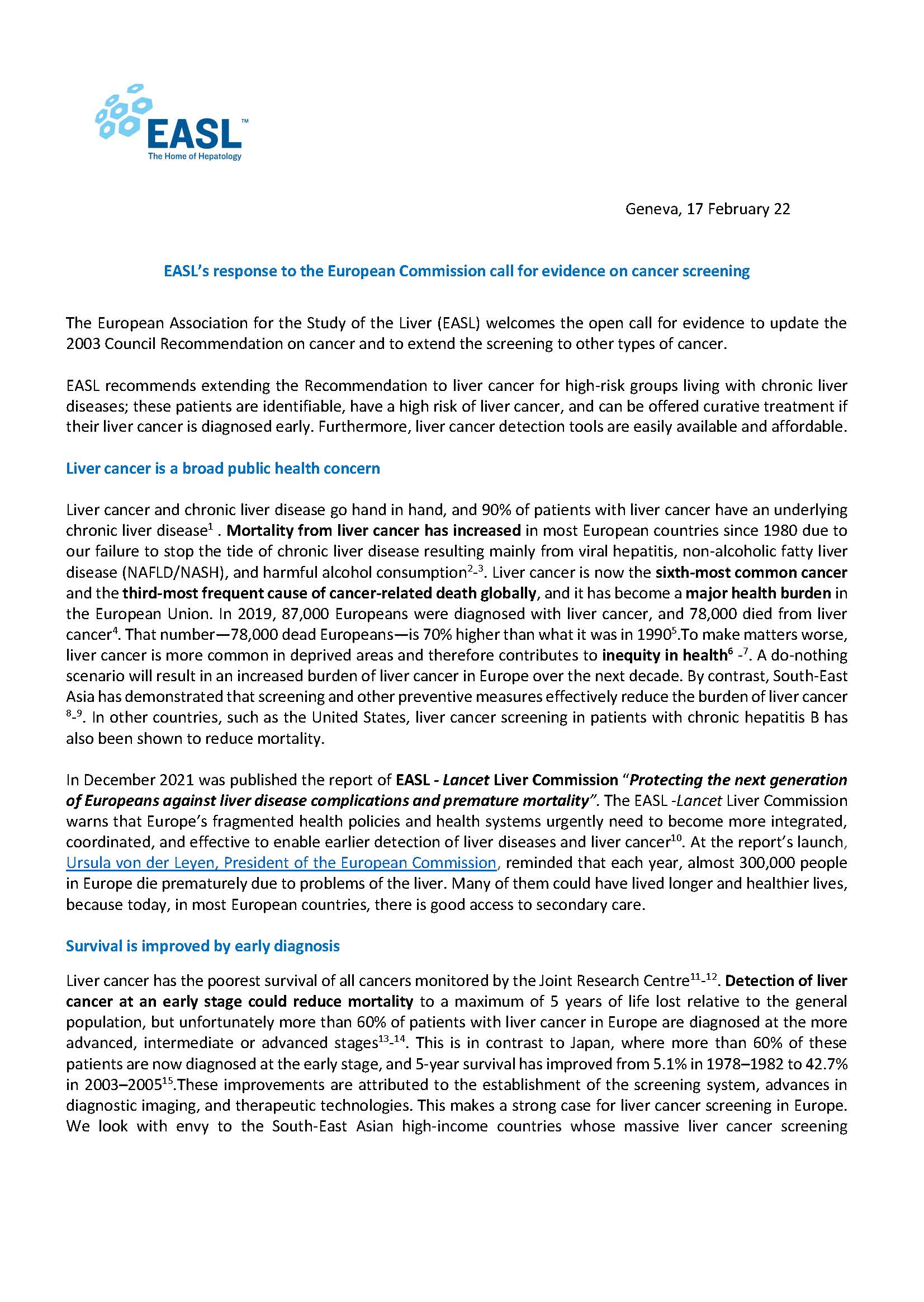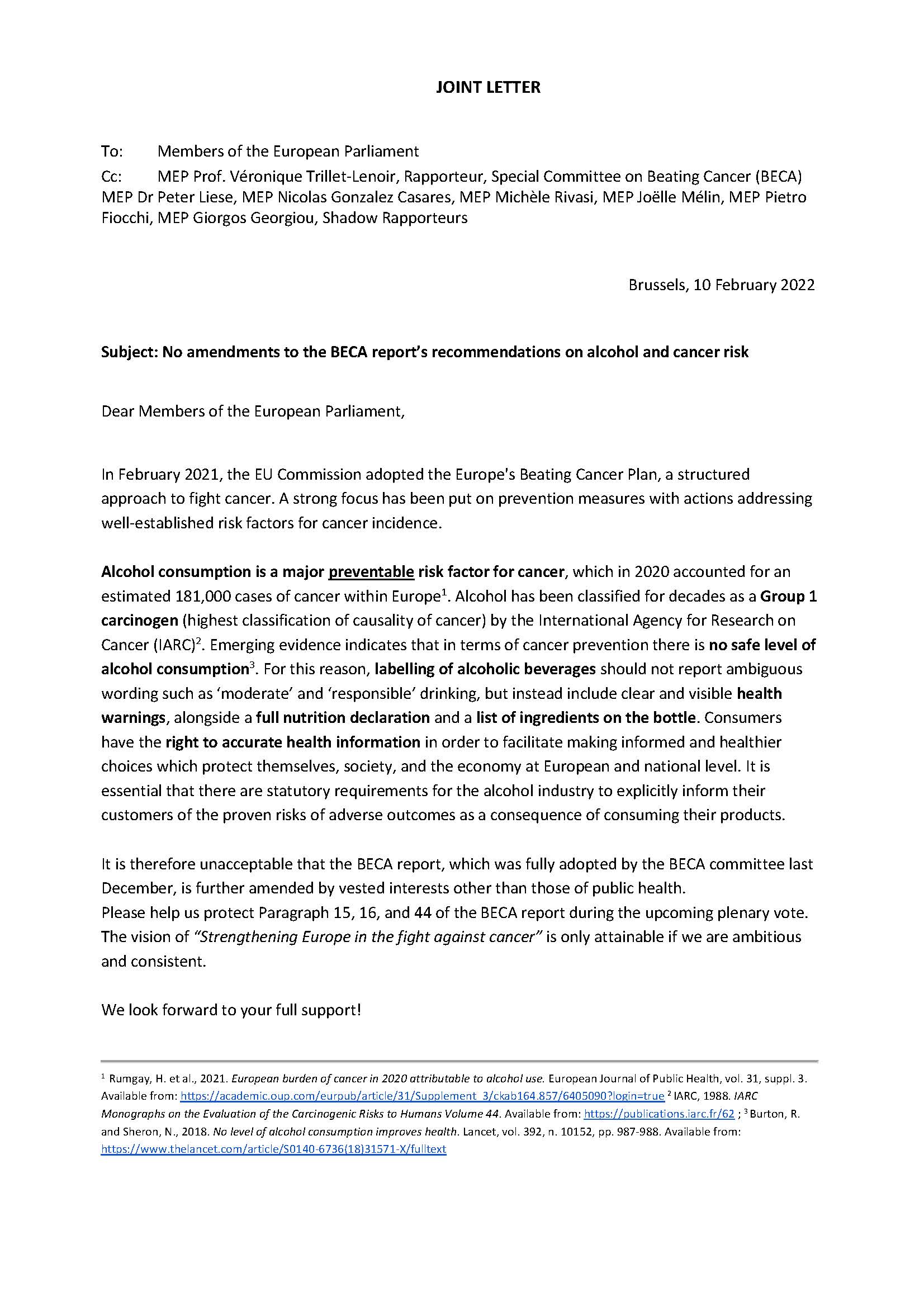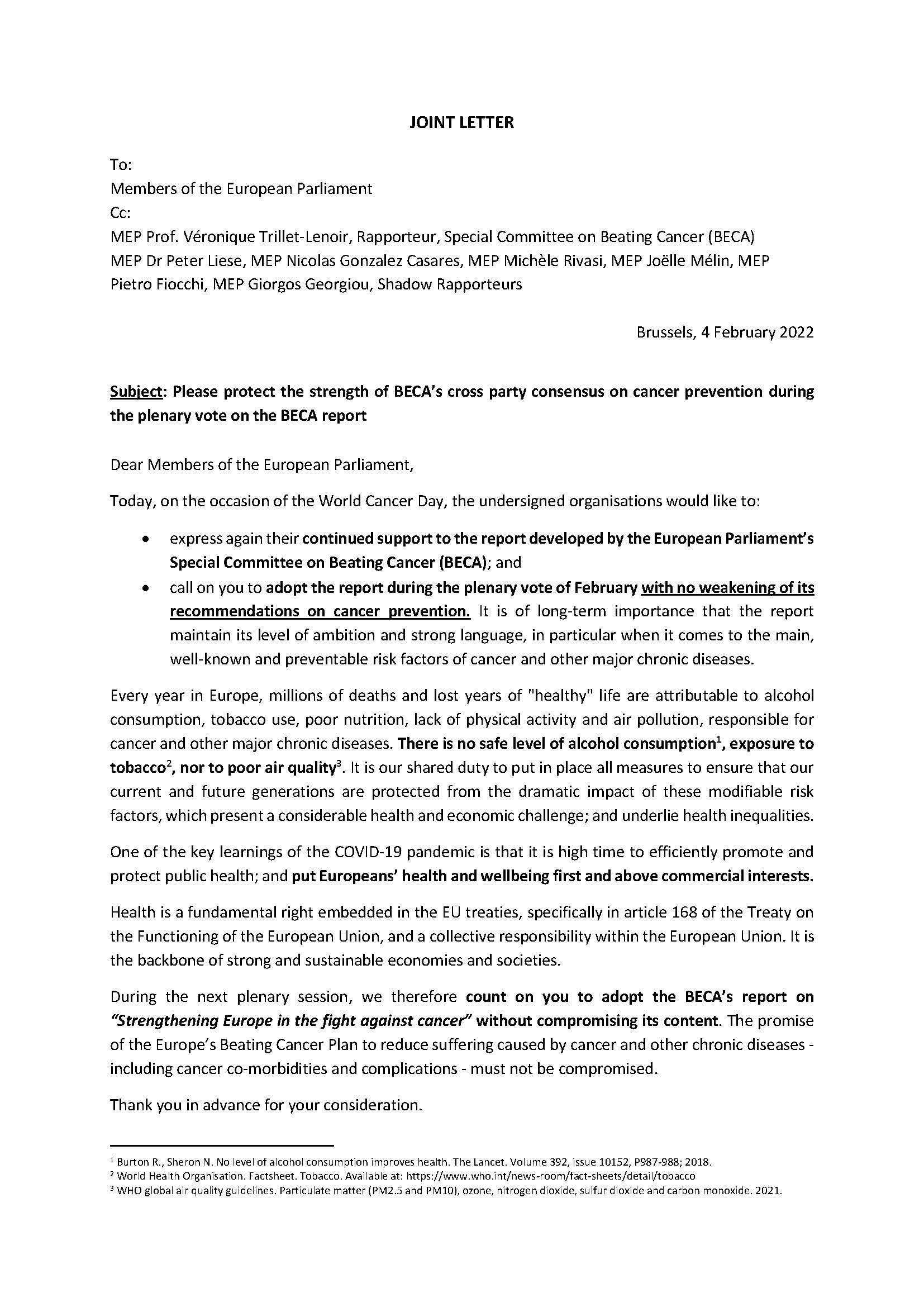EASL Clinical Practice Guidelines on Extrahepatic Cholangiocarcinoma
Recent years have witnessed significant advances in the imaging, molecular profiling, and systemic treatment of cholangiocarcinoma (CCA). Despite this progress, the early detection, precise classification, and effective management of CCA remain challenging. Owing to recent developments and the significant differences in CCA subtypes, EASL commissioned a panel of experts to draft evidence-based recommendations on the management of extrahepatic CCA, comprising distal and perihilar CCA. Particular attention is given to the need for accurate classification systems, the integration of emerging molecular insights, and practical strategies for diagnosis and treatment that reflect real-world clinical scenarios.


